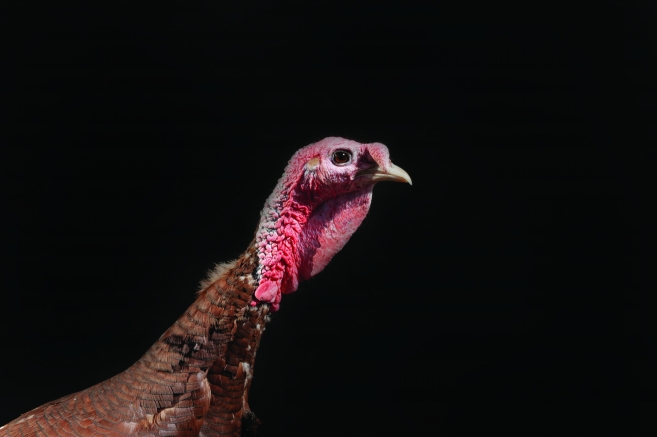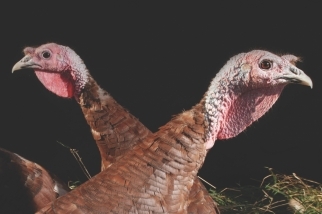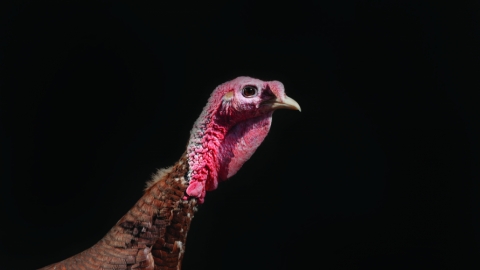Heritage Turkeys: Thanksgiving's Hidden Treasure
With Thanksgiving quickly approaching, it’s time to design the menu for (arguably) the most important meal of the year. Among the star side-dishes like stuffing, mashed potatoes and green bean casserole, sometimes the turkey just doesn’t shine as bright as it should. Why is it that year after year, some turkeys come out of the oven dry, bland and just plain uninspiring? Sure, the cooking process may hold part of the blame, but what if it's more than that?
The typical choice of turkey for Americans is the Broad Breasted White. This bird is strategically bred to produce extra large breasts with more white meat. Because of this, they can’t fly, and require artificial insemination to reproduce. Being a somewhat dry and flavorless bird, they are injected with a concoction of salt and added flavorings during packaging and then sent to your local supermarket. Broad Breasted Whites have a very rapid rate of growth, consequently propelling the breed to be the most commonly purchased and widely available turkey in America.
Therefore, the first step in combating a bland bird is not to purchase a bland bird!
Heritage turkeys boast an impressive resume. They must meet specific requirements to be considered a true heritage breed. First, they must be the offspring of a naturally mating pair of turkeys, including both the parent and the grandparent stock. Next, they must have a long and sustainable outdoor lifespan. Heritage turkeys are natural foragers, so their overall flavor is affected by pastured grazing. Another benefit of the outdoors is that the turkeys develop pockets of fat to protect themselves from colder weather, which translates to pockets of flavor. Lastly, they are required to have a slow to moderate rate of growth. The turkeys must have an opportunity to harbor healthy functioning organs before harvesting, developing a dynamic flavor profile.
Heritage turkeys tend to be smaller than the average Broad Breasted White, but what they lack in size they make up for in taste. They tend to be finer-textured birds with an equal ratio of white and dark meat. Heritage birds have a more robust flavor without the excess salt from injected flavorings.
Because Heritage turkeys have such strict requirements for raising and take longer to mature, the cost is more substantial than a Broad Breasted White. Lisa Malmarowski, Director of Brand and Store Development of Outpost Natural Foods states, “Our Heritage turkeys are Wisconsin pasture-raised, grain supplemented and grown in very small flocks. It takes a lot of work to raise turkeys in this manner in order to achieve market weight within our shorter Midwest growing season, so the price reflects this effort.” Even though they are expensive, every purchase of a Heritage turkey helps to support these sustainably raised birds. “Without consumer interest in these breeds, they would literally die out in favor of the larger, big-breasted, fast-growing breeds,” Malmarowski continues.
Outpost Natural Foods offers fresh, genuine heritage breeds, not just Bourbon Browns like many other retailers advertise as heritage – which are actually just brown feathered birds. Outpost carries two variations of Heritage turkeys: Organic Narragansett turkeys from Kellner Back Acre Garden in Denmark, Wisconsin and Bourbon Red Heritage turkeys from Happy Destiny Farm in Two Creeks, Wisconsin. All Outpost locations will have a limited supply of Heritage turkeys for their 2018 season starting on Saturday, November 17th, so pick them up as soon as you can!
Outpost also provides a guide on how to prepare a heritage turkey. You can find that here.







